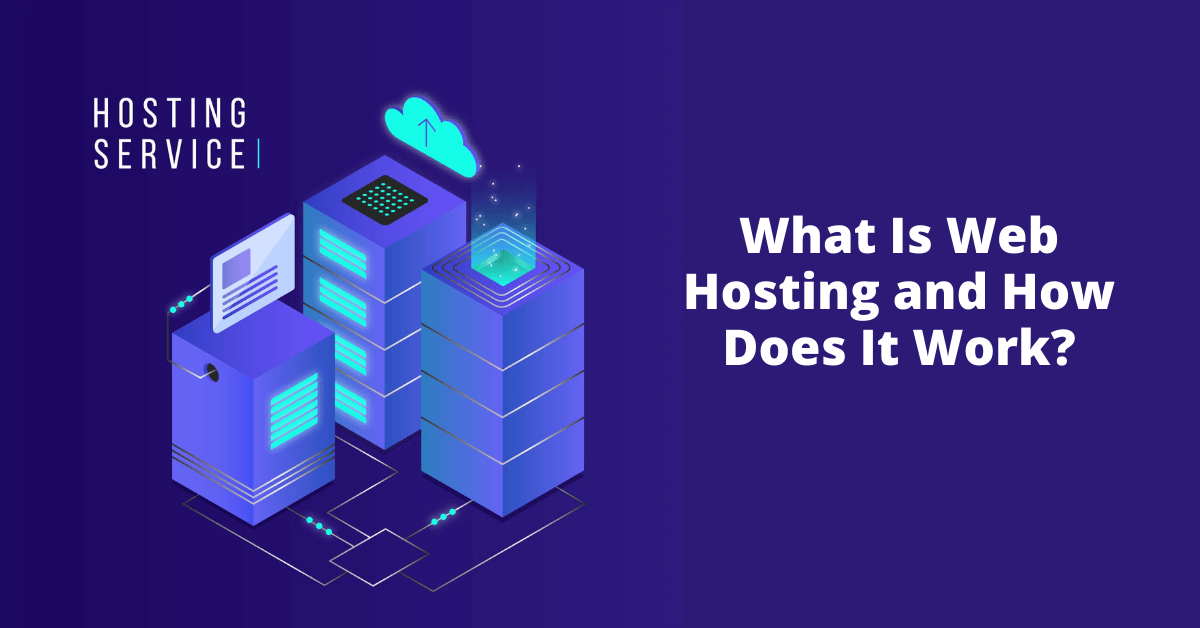
If you are thinking about starting an online business or switching to a new eCommerce platform, you should start by learning how eCommerce platforms work.
Online retailers can decide to self-host an eCommerce application or to use a hosted platform. Both have the basic building blocks for online stores: an Internet connection, a shopping cart, checkout process, product pages, and a content management system (CMS). The similarities, however, end there.
SaaS or online store on your own hosting? An important question that has no easy answer!
But what are the main distinctions? Is one better suited to some types of eCommerce stores than the other?
This is the most important decision that companies must make before deciding on a platform. And that’s why it’s not to be taken lightly. If you make the wrong decision now, you might find yourself facing some significant costs later on. Don’t worry if you’re not sure which is best for you; this amazing article will go into the key benefits and drawbacks of both hosted and self-hosted eCommerce sites.
If you ask 90 different online store owners which is the best system, you will get at least 30 different opinions.
Why? The experience, opportunities, specifics, processes, and resources of each business are different. Therefore, we should show you the main differences, advantages, and disadvantages of the two types of platforms that you can use if you want to sell online.
What Is Web Hosting and How Does It Work?
As the saying goes: “A host is where the website lives.”
Web hosting is a service that connects the website to its physical location. It’s also in charge of the technology that connects your website to the Internet. Web hosting makes room on its server available for other computers all over the world to connect to your website via a network or a modem. When you run a website, you quickly realize how critical the hosting plan is.
Before we go over the nuances and why it’s better to choose one over the other, let’s go over what the two key online shopping options are.

Self-hosted online store
This is an eCommerce software that is installed on your own server that you have first rented from a hosting provider.
In other words: You buy a hosting plan (shared or rent a server) on which you install the online store (WooCommerce, OpenCart, Magento, etc.).
Self-hosted online trading platforms can be free open source or paid custom solutions that are created entirely based on your business needs and specifics.
This means you’re in charge of the whole project, including the design, hosting, and data storage.
If you don’t know what you’re doing, self-hosting can be a daunting challenge. As a result, you’ll need professional guidance to ensure that you’re doing it correctly.
Fortunately, there are a number of organizations and suppliers that can provide you with the assistance you need. Even though it is for a small price.
On-premise eCommerce: Originally, this meant that your eCommerce website will be hosted on the same servers that you use to run your business and run the apps. Today, however, this term is almost synonymous with “self-hosted.” This ensures that even though the servers are hosted by an external network, they are also considered on-premise.
SaaS (Software as a Service) online store
Here the description can be presented in various ways, but basically, SaaS platforms are a ready-made package solution, which includes software for inventory management, hosting, upgrade modules, store capabilities, and technical support. Some examples include Shopify, BigCommerce, Salesforce Commerce Cloud, and Volusion.
In this case, you do not need to install anything or rent hosting – these platforms are hosted on the servers of the service provider.
The store is managed directly through the browser by logging in to an online portal. And for all this a small monthly fee is paid.
Advantages and disadvantages of both types of platforms
There are 3 main ways to create an online store:
Do it for me
Do it for yourself
Do it with me
Everyone can choose one of the three concepts through which to create their online store, depending on the specifics of their business.
If you choose a SaaS solution, it is usually faster to run your business through the DIY strategy as these platforms are easier and more intuitive and the CMS will require more technical expertise.
Check the platform’s uptime to ensure that your store is accessible to your customers at all times. Consider another choice if your uptime is less than 99 percent. The servers should also be fast, scalable, and have plenty of bandwidth. When you give special offers or choose to expand, this means that your store can handle more traffic.
Shopify for example offers 99.99% uptime.
If you select a fully hosted solution for your shop, your site will only go down if the entire SaaS platform goes down. Shopify has about 1 200 000 shops, and if they all go offline, Shopify has a good incentive to get them all back online as soon as possible.
In order to be able to make an adequate and informed decision, we will consider the main advantages and limitations of both types of platforms.

Advantages of online stores on your own hosting
- You have more control and flexibility over the platform.
In this case, you are not limited to customizing the store as you wish (as long as you can or can afford it).
- Additional features that you can order/create. If you need some functionality, you can simply download the plugin and get it (OpenCart, WordPress). It really is that easy.
- You set up the server and the store as you wish and if you have the resources, experience, and capabilities to cope with business growth and increased demand will not be a problem. The scaling possibilities are unlimited.
- It’s much simpler to switch platforms. Since the platforms are typically low-cost, switching after outgrowing a supplier is much cheaper and simpler than with hosted platforms.
Limits on online stores on your own hosting
- More difficult to install and set up. It takes much more time.
- More expensive to maintain and upgrade.
- They need you to go through the various processes of creating a store, which include providing hosting, shop structure, previous experience, programmers, etc.
- If something goes wrong, there will be no expert help. Platform issues are entirely the concern of your business.
- If you use a programmer in the beginning, but then split up (usually the passwords to access the FTP and hosting remain with him), it is very likely that you will encounter problems.
- Costs will start to add up depending on your host provider.
- If you do not have experience with the platform, you will need an expert to take care of the maintenance and upgrade of the store.
- The security and updates of the system depend on you.
In short: For proprietary hosting platforms such as OpenCart, Magento, WooCommerce, etc. you are responsible for maintaining all aspects of the software you use. Including updates, hosting plan, modifications, modules, future features you will need. Everything!
For start-up retailers, this can be expensive and time-consuming.
Conclusion: The option of owning a store is great, but it can be expensive to start up, difficult to set up and customize, especially if you haven’t done it before and want to do things yourself.
Now let’s look at what SaaS is all about.

Advantages of SaaS platform online stores
- Pay just for what you need on a monthly basis. The aim of any business owner is to keep costs as low as possible, and hosted eCommerce helps you to do just that. Nobody likes squandering money on the functionality they won’t use, so hosted eCommerce allows you to pay for additional features and storage only as your company grows.
- Rapid and effortless start at an affordable price.
- Management simplicity. Hosted eCommerce sites are well-known for being simple to handle. Their tried-and-true web templates are extremely user-friendly, even for the most inexperienced techie. The interfaces are intuitive, as you can see below, with no important features covered.
- They do not require you to hire a programmer or to code by yourself.
- It does not require you to rent hosting, install external software or make complex settings on the platform.
- You have timely support and support 24/7.
- One of their biggest advantages is that the software is not installed by you and is not maintained by the user.
- The reduction in damages and possible threats to your whole company is a huge advantage of having protection taken care of.
- This is an all-in-one package service with a focus on sales, including design, features, and support.
- You have pre-created templates and built-in functions (modules) for much easier use and scaling.
- You create an account, quickly adjust the appearance of the store, choose payment and delivery methods, upload products and start selling (in 2-3 days you can be ready with everything).
SaaS also has ready-made templates for the look of your store.
This eCommerce system runs on the hosted servers of the SaaS provider. In this case, the service provider is responsible for the security, performance, and maintenance of its servers.
You only need to sell.
Limitations on SaaS online stores
- You are running a business on a platform that is not yours.
- Customization is limited. Since the system is already in place, customization options are limited. As a result, you’re constrained on how much of your own personality you can put into things. Yet some SaaS offer custom solutions.
- In some cases, SaaS lacks the extreme customization that you can have with self-hosted.
- If your business grows a lot and you need some unique functionality, SaaS may not be able to provide it to you.
- The cost of living is that at an ever-increasing rate. The more your business expands, the more expensive hosted sites get. When your site starts to get more traffic and needs more powerful features, host platforms will charge you more.
- It is uncertain whether it will be a suitable solution if you plan your inventory at the start to be tens of thousands of products.
- There is a possibility of insufficient flexibility in scaling.
- Changing platforms and toggling between them can be costly. Switching from one host to another could be expensive. While there are many options on the market, if you’re forced to switch platforms, it can be costly and detrimental to your company’s bottom line.

Which of the two types of platforms is best for me?
Answer yourself the following questions:
- Do I have to launch the store very quickly (in situations like COVID19 I want to start immediately because I will miss opportunities)?
- Do I need additional programming and upgrading of the store with features that I will definitely need or can I start with the most basic and then upgrade?
- What features are absolutely mandatory for my online store?
- Do the SaaS platforms I have focused on have any?
- What monthly maintenance budget can I afford to pay?
- Do I want to do my own On-Page SEO optimization or will the capabilities of SaaS be enough for me?
- How much do you know about data privacy laws in your area and in each place where your website is visited? If you have an audience in European countries, for example, you must comply with the General Data Protection Regulation (GDPR) and post your data policies on your website.
- Based on my experience, will I need 24/7 technical support or will I be able to handle it myself if something breaks?
- How many products and product variations do I want to list (consider your future growth plans and associated costs)?
- What is my situation (market growth, financial crisis, or rise in a specific niche)?
- How fast do I want to start selling?
- What features are absolutely necessary for your company?
- What are the support options I currently have?
- How much money can I invest in my online business?
- Do I have previous experience in online trading?
- Will I create a brand new store or will I move my current one?
- How many items will you have and how many choices will you have? You should also think about potential development and the costs that come with it.
- Do I have previous experience in creating and managing e-business?
- Am I planning to upgrade the store or do I just want to test?
- Is there a community around the platform I’m going to choose?
- What are the scaling capabilities of the platform?
- Are there free or paid modules to upgrade the capabilities of the online store or will I have to order or develop them myself?
- Does the platform have good support to rely on?
- Is the platform updated regularly, is it protected?
Keep these hidden costs in mind:
- For maintenance
- For upgrade
- New features
- UX changes
Expectations vs Reality
If you do not realize the goals, opportunities, and strengths you have at the moment and the market situation, if you do not “look ahead to the future”, you may fail before you start.
The most common situations and circumstances in which SaaS is the right solution for your store
“Our retail customers are increasingly looking for an eCommerce platform that allows businesses to focus on generating sales instead of spending money and time building, maintaining, and integrating sophisticated online store platforms.”
SaaS platforms are not the answer to every need!
They are not suitable for absolutely every entrepreneur in terms of opportunities, resources, goals, and size of the business.
But if you are in any of the following situations, they may be a good choice.
Situations where SaaS is appropriate:
- If you are a starting online retailer and you are looking for speed, minimal costs, good maintenance. Then it is more pragmatic to focus on marketing and service, instead of throwing resources to develop an expensive and complex online store.
- If you can’t afford an agency or programmer to install and set up your online store.
- If you have an online store but want to quickly test new products on the market by easily creating landing pages (the funnel).
- If there is legal chaos in the country in online commerce, there are regulations with huge ambiguity of application, bringing only uncertainty, you can safely and profitably test with SaaS to see if it is worth building something more serious in the future.
- If you make customer sites and want to make your job easier and smaller without lowering prices and sacrificing quality (SaaS as a tool, not as a competitor).
- If you are still selling through a Facebook page, but already want to have your own online store to look more serious.
- If you are going to use SaaS as a quick validation tool.
- If your WooCommerce store has started to require too much technical support and instead of selling, you are dealing with settings, adding modules, and troubleshooting.
The overall cost
The cost of both SaaS and self-hosted platforms varies greatly depending on the size of your business.
The majority of SaaS eCommerce platforms operate on a tier-based model, with monthly license fees ranging from $25 to $3000+, depending on factors such as sales and platform requirements. Both major SaaS companies, such as Shopify Plus and BigCommerce Enterprise, have an enterprise version of their software tailored for enterprises with an annual turnover of £500K or more.
The monthly licensing fee for SaaS platforms includes hosting, an SSL certificate, updates, 24/7 support, security patches, and a range of other features, such as advanced reports and a dedicated performance manager, depending on which package you select. You’ll have to pay credit card rates and payment gateway fees in addition to the licensing charge.
Self-hosted eCommerce platforms are often free, while hosted eCommerce platforms often need a license fee. While this makes self-hosting appear to be less expensive at first glance, you’ll still have to pay for hosting, which costs an average of £350 a month, exclusive of VAT.
You’ll still have to pay a licensing fee for some self-hosted apps, particularly enterprise-level platforms like Magento. Magento’s annual fees begin at $22,000 but can vary depending on your revenue source. However, unlike cloud-based services, this price does not include hosting, security, or updates, so the total cost would almost certainly be significantly higher.
Magento recently announced a cloud-based version of their platform that covers hosting costs. However, it is also the most expensive choice, alongside Salesforce Commerce Cloud, with prices starting at $40,000 a year. The cloud edition, however, could be less expensive depending on the cost of hosting your Magento shop.
Rigid cloud-based services are by far the most cost-effective alternative, with included hosting, readily available support, and unrestricted bandwidth.
Conclusion
Consider what is best for your company before deciding between a self-hosted eCommerce application and a hosted eCommerce application: short-term ease or long-term stability and power.
Self-hosted eCommerce is typically better suited to more technically minded business owners and entrepreneurs.
Self-hosted eCommerce sites are a great option if you enjoy digging into the nitty-gritty and have a strong technical background.
One of the key benefits of using a self-hosted platform is the versatility it provides. You’ll be building your own framework, giving you the freedom to design your store however you like.
However, due to the additional design work required, your site can take a little longer to get up and running.
Given the situation you are in, which one will you choose?
You May Also Like...
Top 6 Tools for a Great Start of 2023
After welcoming the New Year 2023, I would like to load you with 6 useful, new and quite interesting tools for you to...
How To Create A Perfect Colour Combination In Your Creatives?
Top SaaS Sales Email Sequence TemplatesGet the perfect colour combination in your creativesHuetone will tell you which...
Relaxation Sounds: Best 7 Tools For You To Focus And Relax
Choosing the right environment plays a huge role in good productivity and rest. Pleasant lighting, a comfortable...



